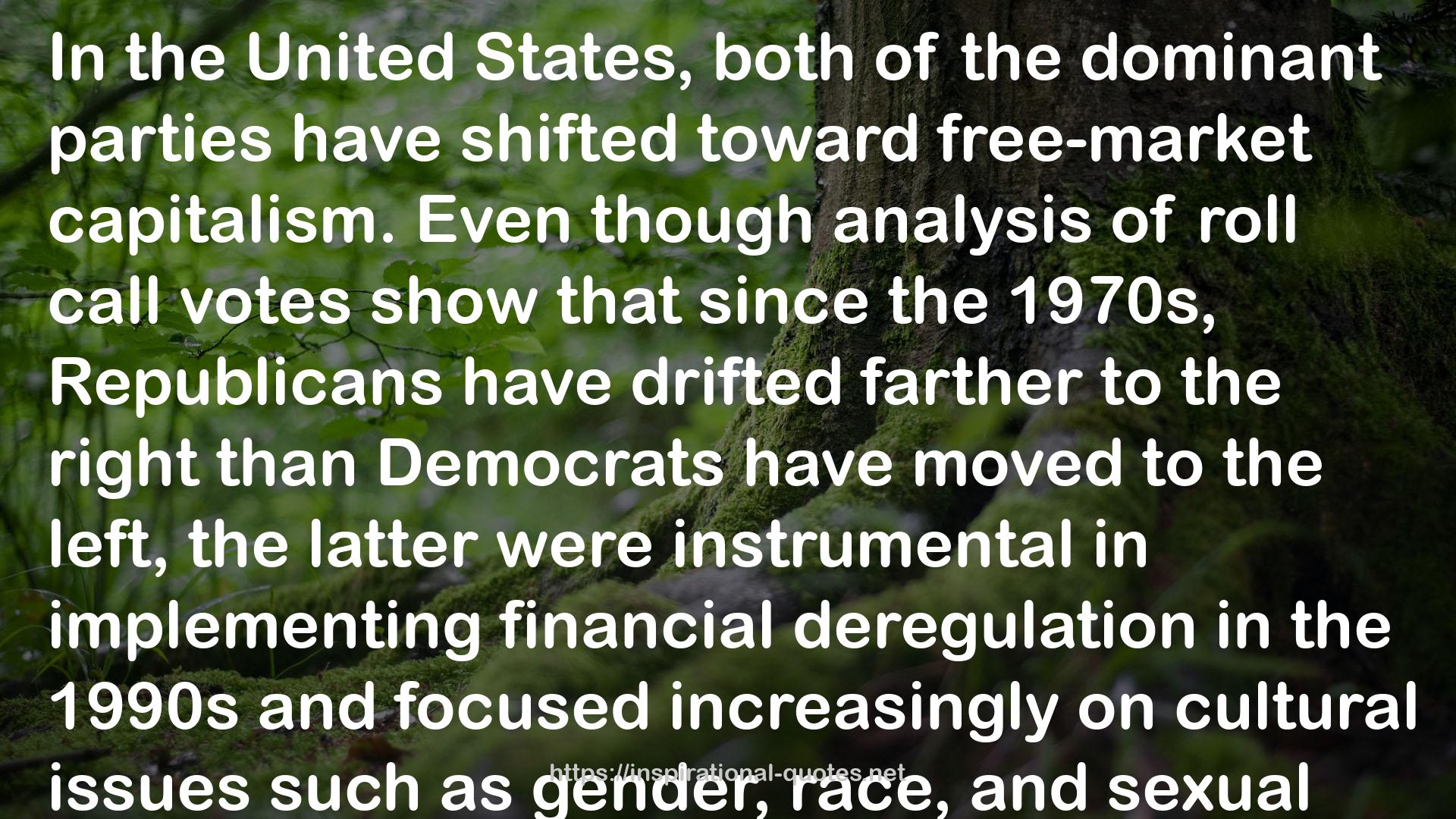" In the United States, both of the dominant parties have shifted toward free-market capitalism. Even though analysis of roll call votes show that since the 1970s, Republicans have drifted farther to the right than Democrats have moved to the left, the latter were instrumental in implementing financial deregulation in the 1990s and focused increasingly on cultural issues such as gender, race, and sexual identity rather than traditional social welfare policies. Political polarization in Congress, which had bottomed out in the 1940s, has been rapidly growing since the 1980s. Between 1913 and 2008, the development of top income shares closely tracked the degree of polarization but with a lag of about a decade: changes in the latter preceded changes in the former but generally moved in the same direction—first down, then up. The same has been true of wages and education levels in the financial sector relative to all other sectors of the American economy, an index that likewise tracks partisan polarization with a time lag. Thus elite incomes in general and those in the finance sector in particular have been highly sensitive to the degree of legislative cohesion and have benefited from worsening gridlock. "
― Walter Scheidel , The Great Leveler: Violence and the History of Inequality from the Stone Age to the Twenty-First Century
